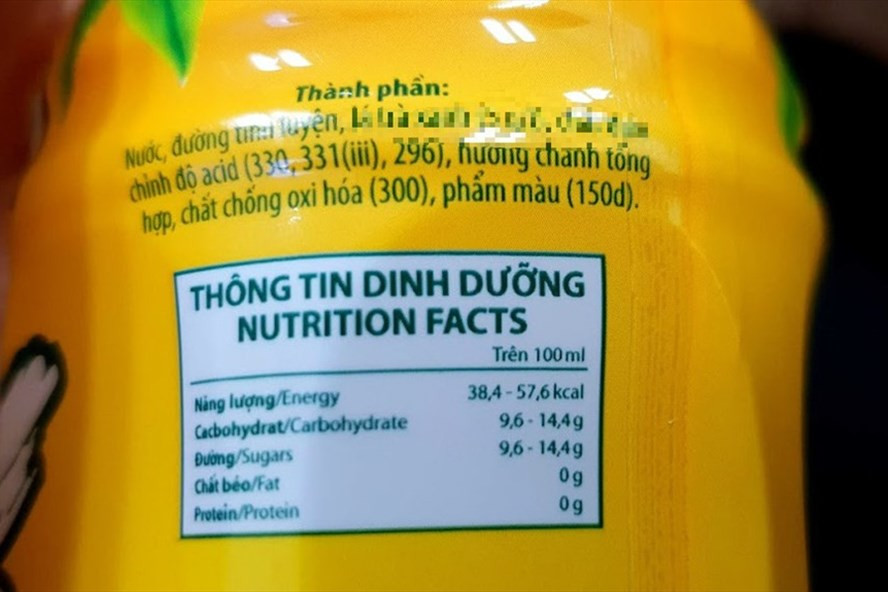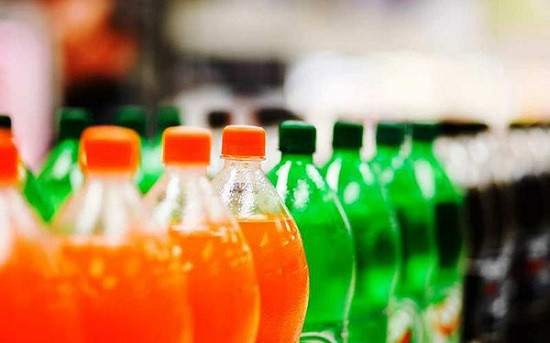Vietnamese people drink 5 billion liters of soft drinks/year, using twice as much sugar as recommended.
Currently, Vietnamese people consume nearly 5 billion liters of sugary drinks per year, a 7-fold increase in the past 15 years, causing an increased risk of overweight, diabetes, and cardiovascular disease. Experts from the World Health Organization (WHO) have proposed 4 options for imposing special consumption tax on sugary drinks to limit the use of sugary drinks.
Vietnamese people "eat" sugar twice as much as recommended.
At the workshop announcing the World Health Organization's recommendations on controlling the consumption of sugary drinks to prevent and combat non-communicable diseases recently organized by the Department of Preventive Medicine, Ministry of Health, Mr. Truong Dinh Bac - Deputy Director of the Department of Preventive Medicine, Ministry of Health - said that currently, on average, a Vietnamese person consumes about 46.5g of free sugar/day, close to the maximum limit (50g/day) and almost twice as high as the consumption level of less than 25g/day as recommended by the World Health Organization (WHO).
A study of 1,910 people showed that over 57% have the habit of drinking carbonated soft drinks; of which 13% of men surveyed and drink carbonated soft drinks said they drink every day, nearly 16% drink 5-6 times/week, nearly 29% drink 3-4 times/week.
In women, although the rate is lower, more than 10% still drink every day. It is worth mentioning that each can of carbonated soft drink contains one and a half to double the total recommended amount of sugar used each day.
 |
| The ingredients and nutritional information of a sugary drink product show a fairly high sugar content: 9.6-14.4g/100ml. |
According to Mr. Bac, the consumption of sugary drinks has increased rapidly, 7 times in the past 15 years. A representative of the National Institute of Nutrition said: Sugary drinks can bring a feeling of refreshment, deliciousness, and can be eaten more than fried and grilled foods. However, many reports show that using alcoholic beverages will cause excess energy leading to fat accumulation, metabolic disorders, and is a risk for non-communicable diseases such as overweight, obesity, high blood pressure, osteoporosis... serious complications are cardiovascular disease, which is the leading cause of death today, accounting for 33% of the total 73% of annual deaths.
Not to mention, currently 16% of adult men and 20% of adult women are overweight or obese; in addition, 11.7% of boys and 7.6% of girls between the ages of 5 and 19 are overweight or obese.
Special consumption tax must be imposed.
WHO experts say that to limit the consumption of sugary drinks, businesses need to label their products to warn that the products can cause certain harmful effects to users' health.
Dr. Guillermo Paraje - a World Health Organization expert, proposed four options for imposing special consumption tax on sugary drinks.
Option 1 is to impose a tax of VND3,500/liter on sugary drinks.
Accordingly, the price will increase from 14% (fruit juice) to 23% (ready-to-drink tea and coffee). When taxed, the consumption of this product will decrease by about 864 million liters, the tax collected will be about 12,090 billion VND. Option 2, imposes a tax of 35 VND per gram of sugar in 100ml. Then the price will increase from 10% (fruit juice and sports drinks) to 25% (energy drinks); consumption will decrease by about 880 million liters; the tax collected will be about 12,4000 billion VND.
Option 3 is to impose a tax of 40% of the factory price. In that case, assuming the factory price is 50% of the retail price, the retail price will increase by about 20%; consumption will decrease by 863 million liters; tax revenue will be 12,400 billion VND.
Option 4 is to impose a 10% tax on the factory price, the consumption price will increase by about 5%; consumption will decrease by 216 million liters; tax revenue will be about 3,690 billion.
 |
| To limit the consumption of sugary drinks, businesses must label their products with warnings that they may cause harm to users' health. |
In Southeast Asia, Thailand has now taxed soft drinks in the direction of the sweeter the drink, the higher the tax.
In 2017, Singaporean tax officials also went to Thailand to review and prepare to apply tax on sugary drinks.


